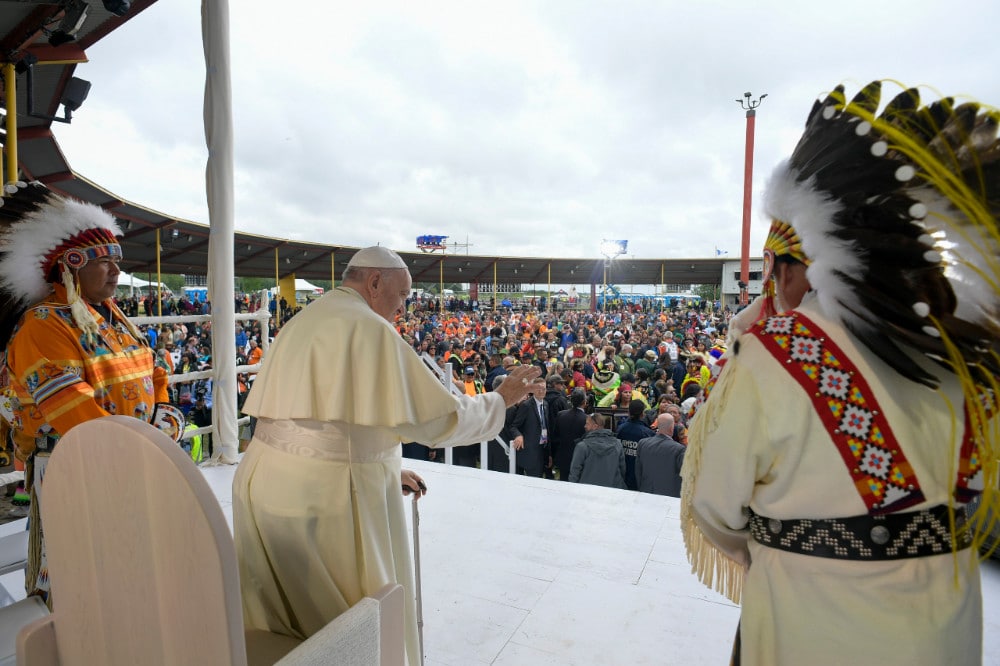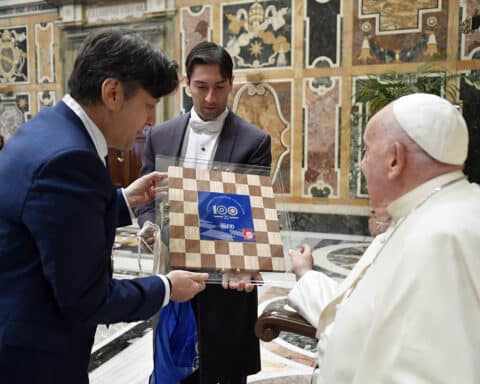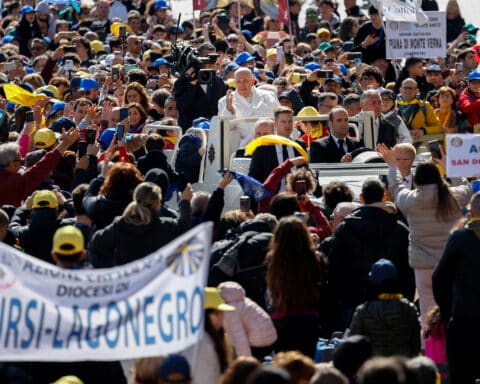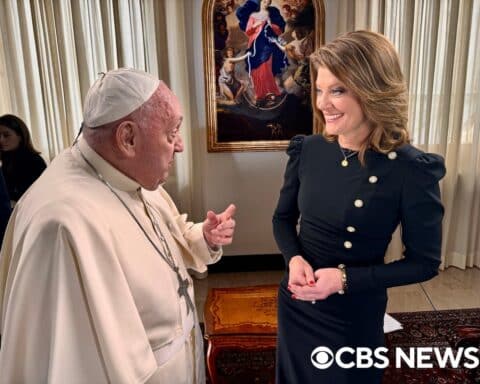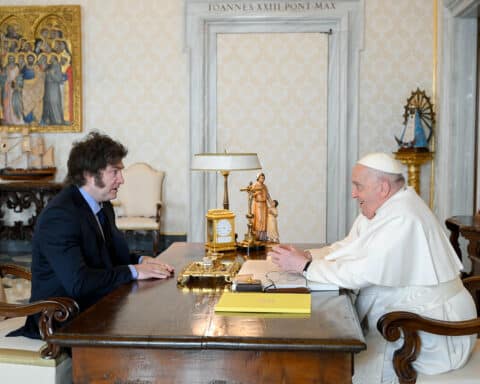Whenever one is wronged, it is natural to desire an apology. When that wrong is severe, such as in the case of the abuse that members of the First Nations in Canada suffered at the hands of Christian educators, including many Catholics, it helps if the apology is face-to-face and deeply heartfelt. This is what took place this week when Pope Francis visited North America for the second time in his nearly 10-year pontificate — and the first time since his visit to the United States in September 2015.
“I humbly beg forgiveness for the evil committed by so many Christians against the Indigenous peoples,” Pope Francis said Monday, in Spanish, to a crowd of more than 2,000 victim-survivors of abuse and other notable guests in Canadian residential schools, most of which were operated by Catholic religious orders. “The first step of my penitential pilgrimage among you is that of again asking forgiveness, of telling you once more that I am deeply sorry.”
Pope Francis offered his apology on the first day of his six-day tour of Canada during which he will encounter and dialogue with the Indigenous peoples who have experienced generational trauma because of the abuse and damaging cultural assimilation practiced in residential schools. The trip itself, not just the words spoken, can be viewed as an apology — a recognition of the severe wrongdoing and abuse of power that took place for decades in institutions that should have placed the well-being and protection of children above all else.
Read further coverage on Pope Francis’ trip to Canada here.
Pope Francis is right to apologize for the great harm done to so many young Indigenous people and their families, and his words were met mostly with appreciation and applause.
This isn’t the first time Pope Francis has apologized for the harm rendered to Indigenous people by Catholics within Canada. In late March of this year, representatives from Canada’s First Nations, along with several Canadian bishops, traveled to the Vatican to share their testimonies with the pontiff. They spoke of the many kinds of abuse that their people had faced at the hands of Church educators, and they shared how that abuse has led to generations of trauma and bad behaviors.
In response, at a private audience with the delegation on April 1, Pope Francis related the great shame he felt for the role that Catholics played in wounding, abusing and disrespecting members of the Indigenous communities. “For the deplorable conduct of those members of the Catholic Church, I ask for God’s forgiveness, and I want to say to you with all my heart: I am very sorry,” the pope said then. “And I join my brothers, the Canadian bishops, in asking your pardon.”
Though no amount of words will make up for such great trauma, we pray they have cultivated a pathway of hope that can lead to a place where healing can begin to replace hurt. In the documentary “Walking Together,” produced by Salt and Light Media, representatives of the First Nations, including several victim-survivors, spoke of the value of an apology from the global head of the Church when it comes to moving beyond the pain. “We need [Pope Francis] to start that healing process that we’ve been looking for,” said Ted Quewezance, a former Keeseekoose First Nation chief and a residential school survivor.
Chief Wilton Littlechild, former commissioner of the Truth and Reconciliation Commission of Canada and another survivor, said: “At one time we calculated that four survivors are dying a day, dying with pain, not having been able to heal themselves or get help healing. So the apology is really crucially important for healing. There’s many out there that are lost, and all they want to hear is that apology.”
They have now heard it — on their own land and by the Holy Father himself.
Will Pope Francis’ apology make a difference? Will healing be able to now take the place of decades of neglect and suffering? This remains to be seen. Reconciliation does not always come easy. But we do know that Pope Francis apologized, that it happened face-to-face, and that it was most undeniably heartfelt.
Our Sunday Visitor Editorial Board: Gretchen R. Crowe, Scott P. Richert, Scott Warden, York Young

